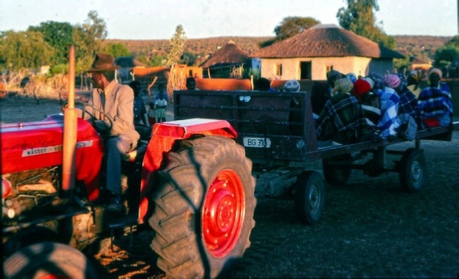© 2018 Dr Margaret Sheppard
There are two types of Weddings -
Go kopa segametsi - to ask for one who will fetch water
.~
At about 1.30-
On arrival at the lolwapa~ the Malome's wife will say: "Ke a nyorilwe, re batla segametsi." (I am thirsty, we need one who will fetch water.) The bride will then bring the Malome's wife some water in a glass. Then she serves all the other women from the groom’s family with water. (At one ceremony I observed , the bride brought them traditional beer that had been specially brewed for the wedding)..
During this part of the marriage only happily married women may take part; no divorcees, newly widowed (i.e. those still dressed in black), suspected sorcerers or those who have quarrels with their husbands, are invited to attend this part. Throughout the wedding people in these categories and unmarried people are not allowed to enter the lolwapa where the married women sit.
Towards sunset the women from the groom's family return in procession to his home, singing traditional wedding songs as they go. This procession is no doubt assisted by the traditional beer that has been consumed -
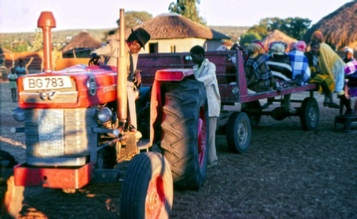
The wife of the groom’s Malome leads them into the bride’s Kgotla. They sing all the way.
The groom’s female relatives being transported to the edge of bride’s Kgotla by tractor.
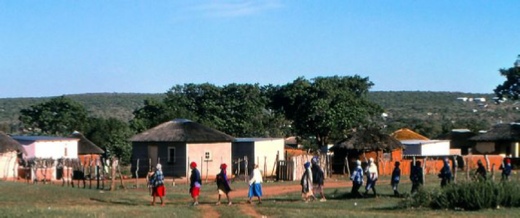
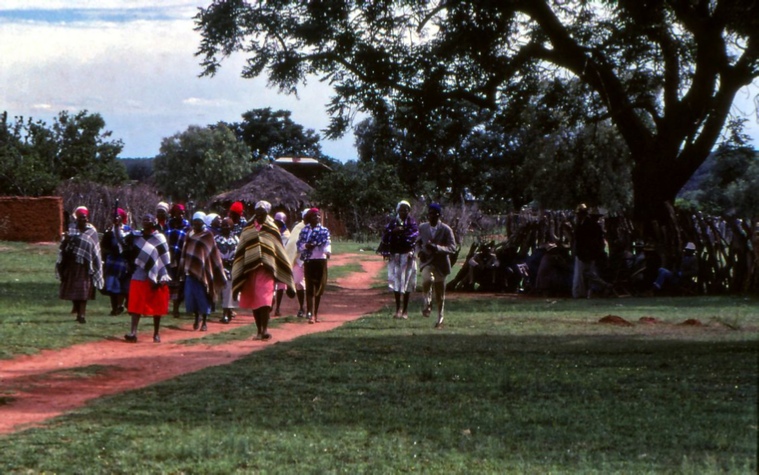
The rest of the afternoon is spent in eating and drinking the wedding feast. This is served by the younger unmarried relatives and friends of the bride, to the visitors who have come from the groom's home and to the senior relatives of the bride. By now the men from both the bride’s and groom’s family sit in the Kgotla where they are served food.
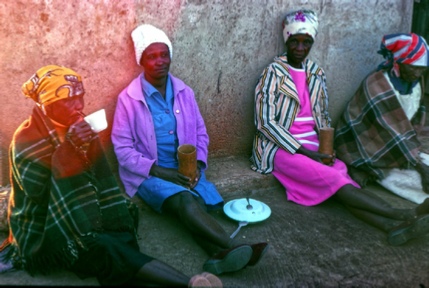
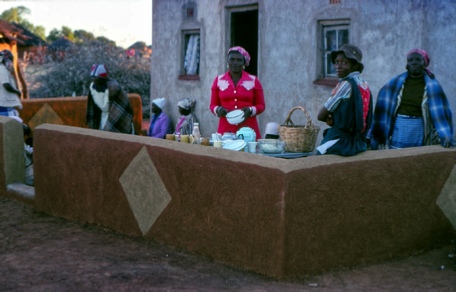
It should be noted that the parents of the couple do not play a prominent part in the marriage and they do not, for instance, go up to the Chief's Kgotla, nor do the mothers go with the other women in the processions to the homes of the in-
